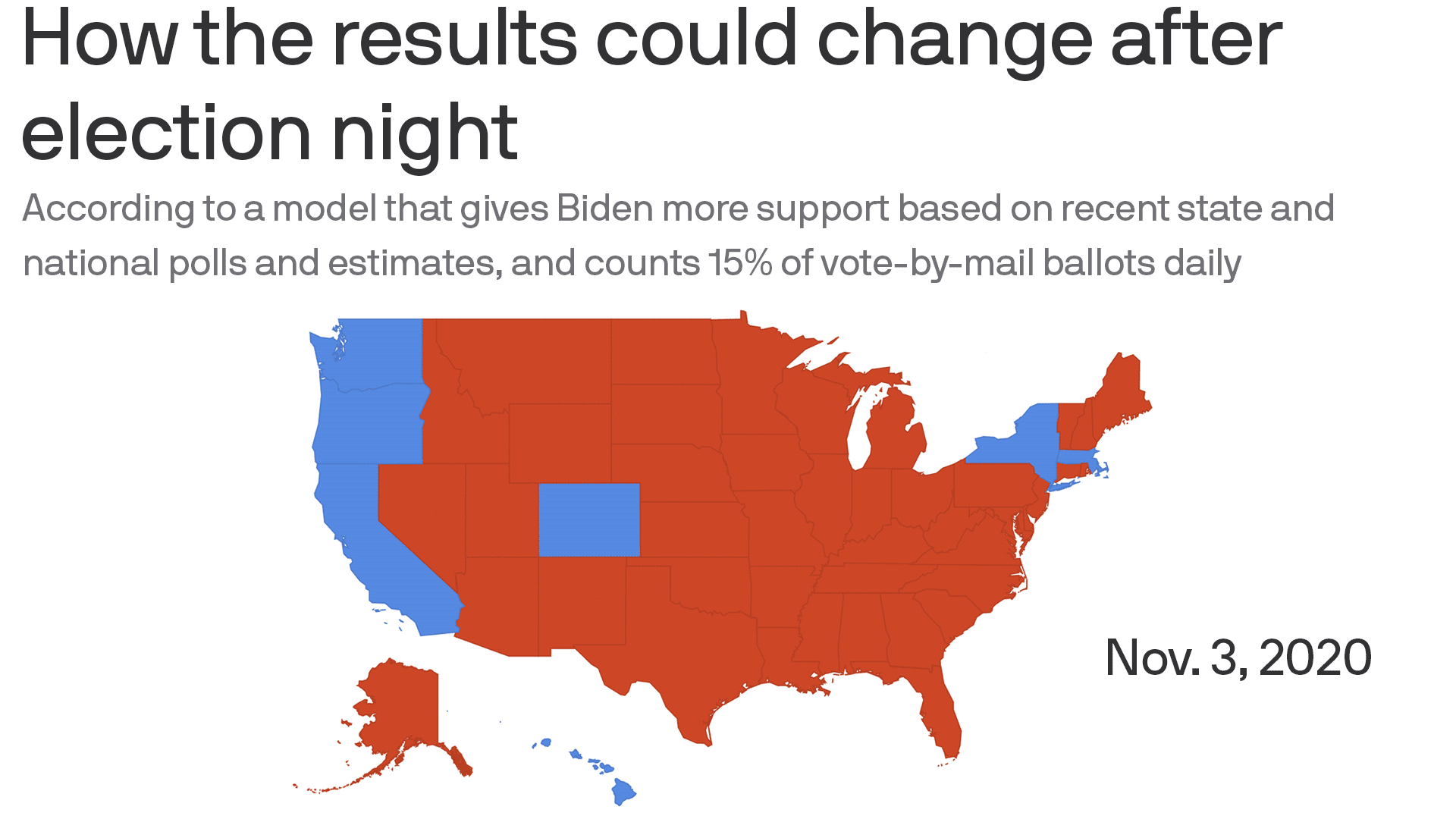
A top Democratic data and analytics firm told "Axios on HBO" it's highly likely that President Trump will appear to have won — potentially in a landslide — on election night, even if he ultimately loses when all the votes are counted.
Why this matters: Way more Democrats will vote by mail than Republicans, due to fears of the coronavirus, and it will take days if not weeks to tally these. This means Trump, thanks to Republicans doing almost all of their voting in person, could hold big electoral college and popular vote leads on election night.
* Imagine America, with its polarization and misinformation, if the vote tally swings wildly toward Joe Biden and Trump loses days later as the mail ballots are counted.
* That is what this group, Hawkfish, which is funded by Michael Bloomberg and also does work for the Democratic National Committee and pro-Biden Super PACs, is warning is a very real, if not foreordained, outcome.
What they're saying: Hawkfish CEO Josh Mendelsohn calls the scenario a "red mirage."
"We are sounding an alarm and saying that this is a very real possibility, that the data is going to show on election night an incredible victory for Donald Trump," he said. "When every legitimate vote is tallied and we get to that final day, which will be some day after Election Day, it will in fact show that what happened on election night was exactly that, a mirage," Mendelsohn said. "It looked like Donald Trump was in the lead and he fundamentally was not when every ballot gets counted."

By the numbers: Under one of the group's modeling scenarios, Trump could hold a projected lead of 408-130 electoral votes on election night, if only 15% of the vote by mail (VBM) ballots had been counted.
Once 75% of mail ballots were counted, perhaps four days later, the lead could flip to Biden's favor. This particular modeling scenario portrays Biden as ultimately winning a massive victory, 334-204. The methodology, described in detail below, was based in part on polling from FiveThirtyEight in August. The ultimate results may well sit somewhere between these low-end and high-end scenarios and will also be impacted by who actually votes, and how voters' views about their options change over the coming weeks.
read more:

Replies